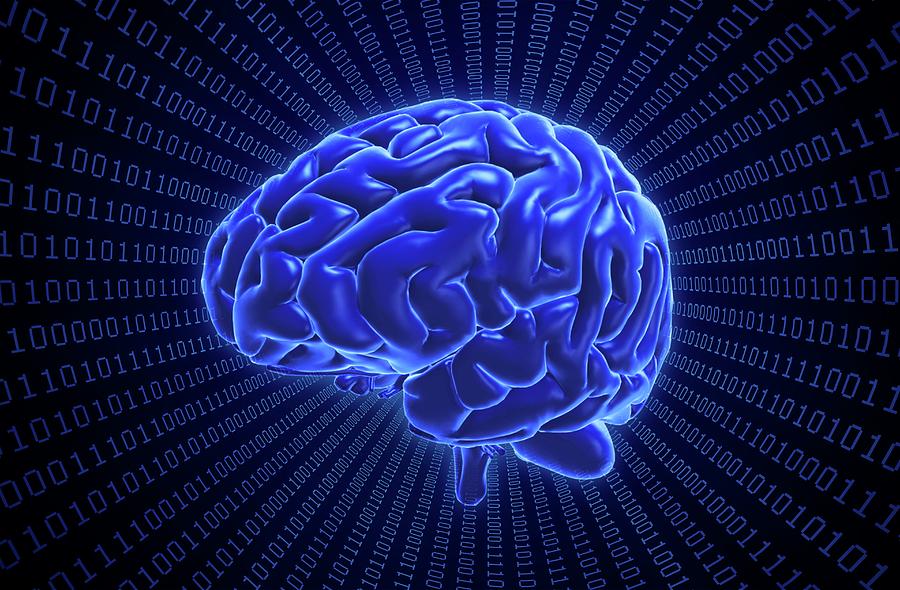The Zero IQ Machine That Rules Our World
The Computer Was Born to Solve Problems That Didn’t Exist Before
— Bill Gates
At first glance, you might wonder—what exactly are we talking about? A computer? A calculator? The machines we rely on to solve our problems effortlessly?
We often think of computers as intelligent problem solvers, but in reality, they have zero IQ. Why? Because they don’t think for themselves. They simply follow instructions—our instructions.
Take a simple math operation: if you input 1 + 2 × 3, it returns 7. But if you actually meant (1 + 2) × 3, which equals 9, the computer won’t correct you. It doesn’t “understand” the problem—it just executes exactly what it’s programmed to do.
Ironically, this lack of independent thinking is what makes computers so powerful. They don’t get distracted, make emotional decisions, or second-guess. They process vast amounts of data in fractions of a second—something that would take humans years. That’s why, despite being "brain-dead," computers dominate industries, powering everything from scientific research to everyday conveniences.
But this brings us back to Bill Gates' quote—computers were born to solve problems that never existed before. It’s an interesting paradox: humans invented computers to make life easier, yet we now find ourselves creating problems only computers can solve—from data security and AI ethics to algorithmic biases and machine-generated misinformation.
What Exactly Is a Computer?
Let’s take a step back and truly understand what we mean by "computer."
In simple terms, a computer is any device that can store, process, and retrieve data. It follows instructions, processes information, and responds based on predefined rules.
For example, think of a TV remote—when you press the power button, it sends a signal to turn the TV on. When you press it again, it turns the TV off. But how does it "know" what to do? Because it has pre-programmed instructions telling it how to respond in each scenario.
Now, you might be wondering—is a remote even a computer? Yes! It processes input, executes a function, and provides an output, just like any computing device. In fact, you’re surrounded by computers without even realizing it—your alarm clock, refrigerator, TV, smartphone—all function as computers in their own way.
That’s the beauty of computers—they are everywhere, silently working behind the scenes, making life easier without us even noticing.
The Language of Computers: 0s and 1s
Computers operate using just two numbers: 0 and 1—the language of binary. But if a computer only understands 0 and 1, does that mean it can only process simple "yes" or "no" responses?
At first glance, it might seem that way. Imagine asking a computer, "Are you good?"—it could only reply with "Yes" (1) or "No" (0). There's no room for something in between, like "I’m feeling okay" or "Not great, but not terrible."
However, computers overcome this limitation by combining multiple 0s and 1s to represent more complex information. Think of it like this:
- 00 → Not good at all
- 11 → Very good
- 01 → Not good, but somewhat okay
- 10 → Good, but not completely happy
By increasing the length of these binary sequences, we can represent even more detailed states, emotions, and information. This principle applies to everything in computing—from text and images to videos and artificial intelligence.
But What About AI, LLMs, and Machine Learning?
At this point, you might be wondering—if computers have zero IQ, then what about AI, LLMs (Large Language Models), and Machine Learning? Aren't they capable of making decisions?
Well, this is exactly why I introduced binary. Everything in AI, machine learning, or large language models is still fundamentally based on binary data. These systems don’t actually "think" like humans; they find correlations in massive datasets and generate outputs accordingly.
Yes, AI can mimic intelligence to an extent—it can recognize patterns, learn from data, and even generate human-like responses. But does it actually "understand" what it’s saying? Not really. AI doesn’t have true emotional intelligence—it simply follows probabilities and statistical patterns.
For instance, if I ask an AI model, "How can I hurt someone?", it might provide an answer based on available data. But does it truly understand that this is morally wrong? No—it just processes data without an intrinsic sense of ethics. It knows what to do, but not why it should (or shouldn’t) do it.
That’s why, even with all these advancements, a computer still has zero IQ—it lacks independent reasoning, true understanding, and emotional depth.
Final Thoughts: The Human Edge
At the end of the day, human intelligence and emotions are irreplaceable. No matter how advanced AI gets, it still lacks true understanding, emotions, and independent thought.
That’s why it’s crucial for us to use our intelligence consciously—to distinguish ourselves from machines. We must not just rely on AI, but also question and guide it responsibly.
In my next post, I’ll dive deeper into binary, AI, ML, and LLMs, so stay tuned! Hope you all liked this—feel free to share your thoughts and comments, as I’m always open to learning more!



Comments
Post a Comment